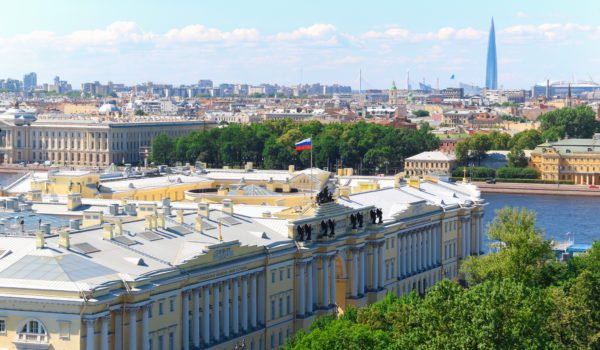If you are a U.S. citizen or your company is a U.S. entity, then, for the foreseeable future, U.S. sanctions against the Russian Federation can impact your ability to seek and maintain IP in Russia. The purpose of this article is to provide you with an overview of key issues for you to consider when creating and implementing your IP strategies involving Russia.
The Enforceability of Your Russian IP
The enforceability of Russian IP is currently uncertain. The Russian government recently issued Decree 299, which allows individuals and companies within the Russian Federation to practice under certain invention and utility model patents[1] that are held by owners from “unfriendly countries” (including the U.S.) without their consent and without any compensation.[2] It is presently unclear whether some or all patents held by U.S. owners will be subject to what would amount to a compulsory license that would allow others to make, use, sell or import your patented invention without your consent and without making payments to you as the owner of a Russian patent. While Decree 299 focused on patents, there is some concern that the Russian government could issue a similar decree regarding trademarks in the near future.[3] On the flip side, the U.S. government and several of its western allies are reconsidering Russia’s “most favored nation” (MFN) status, which could result in yet a further breakdown in Russia’s willingness to assist foreign IP owners with asserting their Russian IP rights.[4] In light of this, now is a perfect time to have a discussion with your IP attorney, so you can work together to determine if and how IP protection in Russia fits into your company’s business plan going forward.
The Impact of General License 31
The Central Bank of Russia is the only bank that processes IP-related fees on behalf of the Russian Patent Office (“Rospatent”). In April, the White House issued an Executive Order that prohibited U.S. entities from making payments, directly or through third parties, to certain Russian banks, including the Central Bank of Russia.[5] Subsequently, the U.S. Department of Treasury (“the DOT”) issued General License 13, which would have allowed such excepted payments to continue, but only until June 23.[6] As a result, many U.S. entities were trying to complete their Russian IP-related activities prior to that deadline, including making advanced maintenance payments for Russian patents and renewal payments for Russian trademark registrations. However, on May 5, the DOT issued General License 31, which specifically authorizes U.S. entities to continue seeking, obtaining, maintaining, prosecuting and defending Russian patents, among other forms of Russian intellectual property.[7] Notably, General License 31 has no expiration date. While this is positive news for U.S. entities owning Russian IP, there are still nuances associated with General License 31. For example, some U.S. banks are taking a conservative approach and refusing to make payments to Russian entities altogether, despite the issuance of General License 31. As a result, it is still advisable to reach out to your IP attorney, so they can help you navigate those nuances and ensure that you are not inadvertently running afoul of the current U.S. sanctions.
Conclusion
There is much uncertainty regarding Russian IP owned by U.S. entities at the moment, and this situation is constantly evolving. Reach out to your IP attorney today so you can work together to figure out the best path forward for you and your business. For more information, contact Jeff Kersting, Julie McConihay, or any attorney with Frost Brown Todd’s Intellectual Property practice group.
[1] See: Russia Does Not Abolish Intellectual Property Rights – Lexology, in which the author asserts that Decree 299 is limited to “those cases only where the Government of Russia has issued an authorisation to use the inventions provided for in Article 1360 of the Civil Code of Russia, i. e., in extreme urgency related to the defence and security of the state and to the protection of the population’s life and health.”
[2] On March 5, 2022, the Kremlin issued Decree 299, which states that Russian companies and individuals can use inventions, utility models and industrial designs without owner permission or compensation, if the patent hails from a list of “unfriendly countries.”
[3] https://www.natlawreview.com/article/kremlin-s-intellectual-property-cold-war-legalizing-patent-theft-decree-299
[4] Document By WESTLAW 3/11/22 REUTERS 17:29:31REUTERS Copyright (c) 2022 Thomson Reuters March 11, 2022, Factbox-What revoking Russia’s ‘most favored nation’ status means by Philip Blenkinsop.
[5] See: https://www.whitehouse.gov/briefing-room/presidential-actions/2022/02/21/executive-order-on-blocking-property-of-certain-persons-and-prohibiting-certain-transactions-with-respect-to-continued-russian-efforts-to-undermine-the-sovereignty-and-territorial-integrity-of-ukraine/
[6] See: https://home.treasury.gov/system/files/126/russia_gl13.pdf
[7] See: https://home.treasury.gov/system/files/126/russia_gl31.pdf

